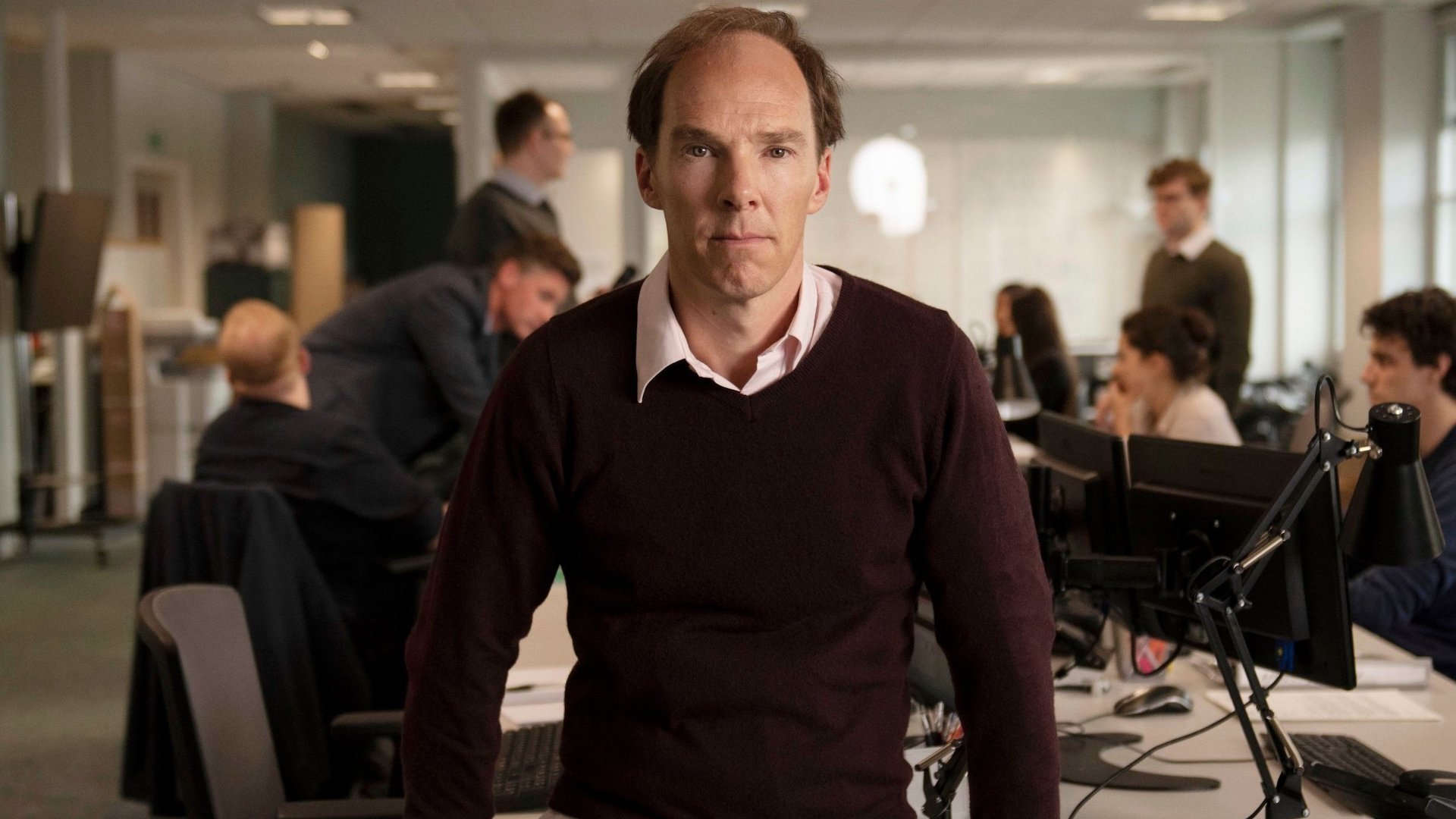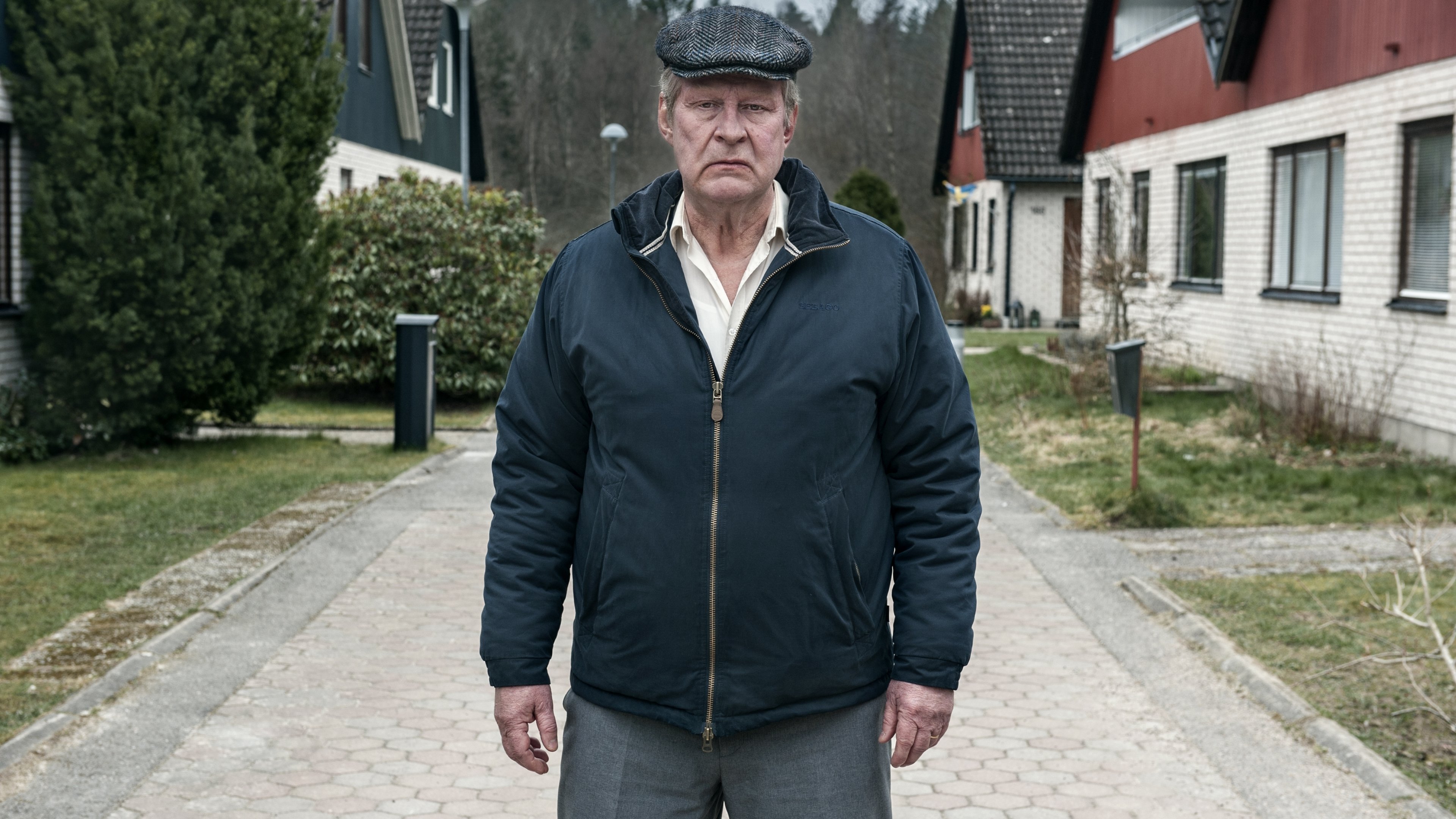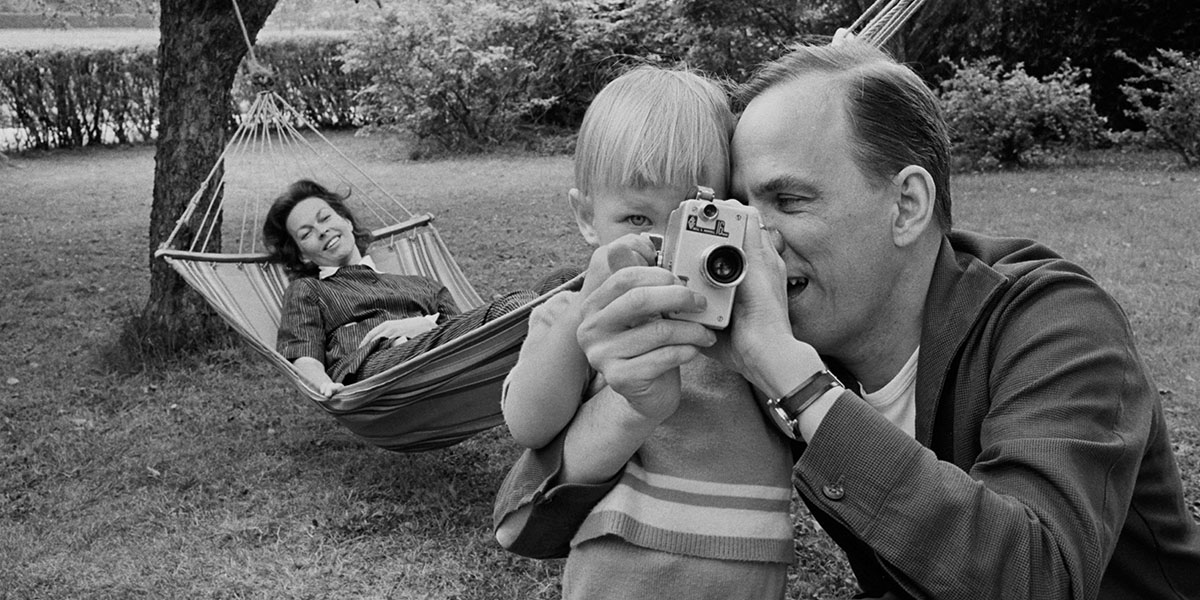Seen in January…

Sophie Fiennes and Slavoj Zizek on one of the many sets and locations for The Pervert's Guide to Ideology. Image via The Movie DB.
This is becoming a bad habit of mine - posting the previous month’s list when the following month is almost done. It hardly matters as the first half of January was lost to me. I had a cold that was relentless. During that time I sought out mostly movies I had seen and knew would comfort me (also it wouldn't matter if I fell asleep while watching). This is what I did see peering from behind a dune of used tissues.
The Pervert’s Guide to Ideology
Slavoj Zizek and Sophie Fiennes have created another in their series of collaborations which are more like cinematic essays or lectures that apply a Freudian lens to many classic films. Zizek is professor of philosophy and a cinephile and Fiennes the director. In this documentary, there's a slight reversal in that Zizek uses film to explain ideology. Not just the ideology of Capitalists versus Marxists or Reagan or Stalin but also how we form our own ideology, especially in the context of the society within which we live. This approach makes the content much more engaging and memorable. One of the surprising insights is how someone like Stalin's personality and personal ideology helped formed the ideology of the Soviet Union and how the survival of Capitalism makes sense because it is inherently self destroying and constantly reforming and aligning itself however it needs to (more like a viral infection than any organizational principles). In that light, Capitalism doesn't need an individual to guide it, but it is much closer to nature's own survival. There are some mind expanding revelations if you're open to it.
A photo by Mark Hogancamp from Marwencol Image via Artsy
Marwencol
The documentary of a man who created his own therapy through his art and is the basis for the latest Robert Zemeckis film Welcome to Marwen (presumably they didn't get the permission of the "Colleen" who makes up the "col" part of the name). I will not see that film because I do not like Robert Zemeckis films and I'm pretty sure you won't really find out much about the real Mark Hogancamp who the story is based on. Mark Hogancamp was at a bar in his upstate New York town when he was jumped by a group of men who very nearly beat him to death. Why? He may have mentioned it wasn't so weird to wear women's clothing. The men were arrested, charged and jailed but that didn't heal Hogancamp. He spent months in physical therapy relearning how to walk and when the insurance money ran out, teaching himself to read and write again. Damaged and reeling from a brain injury Hogancamp withdrew into a world of storytelling where he was the rescuer and rescued hero of his own devising. In some respects the brain injury was a reset. Hogancamp's previous life included a successful marriage until alcoholism tore that apart. After the injury he had no interest in drinking at all. To keep himself occupied he began to build a model town set in World War II era Belgium. He populated this town with his G.I. Joe scaled dolls depicting friends, many female, who were based on those people around him thus the name he gave the town, "Marwencol", an amalgam of Mark-Wendy-Colleen. He didn't just build the town, but created a storyline for it as an evolving place that he recorded through simple but striking photography. When a photographer met Mark on one of his many walks he saw the potential of the work, contacted a small art magazine publisher and gallery owner. That's how his work and story came to national attention. By the end of the documentary we see Hogancamp realizing this next stage of his life in a new version of Marwencol. In this new version, the action figure of himself is not a WWII hero but an artist photographing a scaled down version of his original creation. Retelling his reality in an alternate nested reality is a sort of physical manifestation of how we relate our memories when we repeat our own stories to ourselves and others. Picture yourself telling a table full of friends how one time you found a cat in a tree. Now imagine you created a scaled version of yourself sitting at a table of doll sized depictions of those same friends and on the table you have created a scaled diorama of yourself rescuing a cat from a tree. That's what this would be like. Come to think of it, it would be interesting to view this with Charlie Kaufman's Synecdoche, New York which is about creating something as a stand-in for another thing (sort of).
Dennis Weaver confronts his nemesis in Spielberg's Duel. Image via the Movie DB
Duel
This made for TV movie from 1971 shows that early Stephen Spielberg had all the verve, skill and virtuosity of current Stephen Spielberg. Dennis Weaver (TV's urban cowboy, McCloud) is a business man leaving LA heading to visit a client in some rural part of California on a country road when he is driven off the road by an aggressive fuel truck. Shaken, he decides to have lunch at a truck stop where he pulled over. While trying to collect his thoughts he realizes the same truck is now parked outside perhaps waiting for him. Once the truck leaves, Weaver gets back on the highway hoping the ordeal has ended but it has only just begun and the cat and mouse game continues until an unbelievable conclusion. All of Spielberg's camera work, editing and use of music that made such great tense thrillers such as Jaws are evident here and you have to at times remember this was filmed the old fashioned way without computer effects of any kind. Actually, because you never find yourself wondering "How did they do that shot?" is only more evidence of how well made the movie is. Lastly, you come to realize this is sort of like Spielberg's breakout Jaws, if the shark was a tanker truck.The Catcher Was a Spy
Moe Berg, the man, the baseball catcher, the enigma, the spy. This movie is based on the few years during World War II that a retired pro ball player, known more for his eccentricities than his skill, worked for the OSS (the Office of Strategic Services), the predecessor to the CIA. Berg was a well read Princeton graduate with a skill for languages and a life long curiosity which made him a curiosity as a professional back catcher. His scouting record simply stated, "good field, no bat" as a summation for his mostly defensive skill set. It overlooked that he spoke almost a dozen languages, several of which were ancient and dead. Even among his college friends he was considered a loner and eccentric. In 1939, for unknown reasons, though in the book the film is based on Berg is asked by an American diplomat to join an exhibition All-star baseball team (he didn't really have the profile for such a team) touring Japan and it is suggested he take time as a tourist to film the naval yard in Tokyo. The film was later given to the OSS and Berg's academic skills are used to good effect in writing intelligence reports. The central event of the movie is when Berg is tasked with attending a conference in Switzerland to assess from a talk given by German physicist Werner Heisenberg whether the Germans are close to building a nuclear bomb. If they are, he's to assassinate Heisenberg. Most of Berg's time with the OSS is a mystery and much of this mission may be conjecture but as interesting as this story is, it is a uniquely boring movie.Titans
I didn’t think I was really that interested in post-Batman Robin, but it turns out I am. This is a grittier take on caped crusaders as misfits struggling with their own personal demons, sort of like The Watchmen meets The Defenders but with DC heroes. Like many television productions today, the special effects and production values are very high but… don’t put a German highway sign on an Ontario rural route and expect me to think we’re in Europe. Many locations are in downtown Toronto or in small Southern Ontario towns which for me was fun to spot but doubtful anyone else would notice or care.
Benedict Cumberbatch finally figures out his look as Dominic Cummings in Brexit. Image via the Movie DB
Brexit: the Uncivil War
Confused by Britain’s decision to leave the economic trading block of the European Union? Annoyed by the portmanteau? How did it happen? How could it happen? Easy. Manipulate people who’ve never voted via their social media to vote for your team. Easy peasy scary queasy. This HBO film is heavy with British acting talent and to be frank, I think Benedict Cumberbatch gives a better performance than for his Oscar winning turn as Alan Turing. Cumberbatch plays Dominic Cummings, the mad political scientist behind the Leave campaign. You think you know him and you think you’ll not like him, but you will. You’ll like his passion, verve, intensity, passion and intelligence. Then you realize, “Wait, I’m cheering for the wrong side here." This guy thinks everyone else is an idiot or a fool to be pushed aside. That’s the beauty of the writing and direction here, you start to see the Stay campaign as overly confident boors and elites despite the obvious fact that the Leave campaign are equally boorish and political elite but much more conniving. Their exploitation of previously untapped social media information is terrifying. Their leverage of indifference to the truth and fears of voters is excruciating and their complacency in UKIP’s fraudulent, distasteful and racist campaign is disgusting. One of my favourite scenes has Boris Johnson, best described as “a mop rammed through a ham”, standing in front of the now infamous bus imprinted with the lie about the NHS budget, being told by a Leave supporter using UKIP propaganda that “77 million Turkish immigrants are set to come to the UK.” Johnson, one of Britain’s more learned idiots, answers, “Well, I believe that’s simply the population of Turkey so…” before he can explain the absurdity of the claim he is dragged back on to the bus. Who cares if the Leave voters are being misled, they’re being misled by their hearts so it’s alright as long as we win. Yet, what have they won and was it worth prying open a Pandora’s Box of private data to win it?
Ove, the man of the title. Image via the Movie DB
A Man Called Ove
An elderly contrarian and misanthrope terrorizes his co-op neighbourhood with regulations and rude manners. I suppose you're not intended to like this man, but perhaps it is my current age that I feel complete empathy for him. Can you blame him for calling someone who can't park their car or doesn't know how to use a ladder, an idiot? No. There is a scent of cliché when his new neighbours, a mixed race couple with super cute kids arrive with gusto to disrupt Ove’s life. There’s more to it than that as this aging man is busy trying to commit suicide, but the antics and interruptions of his neighbours continually interrupt him. Why can’t they leave him be long enough to finish what he started? You’ll have to watch to find out.The Take
If I told you there was a fast-paced movie that combined the manipulation of populist discontent, a terrorist plot, bad cops and a heist, you might be interested. If I told you its cast had some big name stars you’d ask me what it was called. If I told you it was “The Take” you’d look at me and ask why you’d never heard of it. You got me. Starring Idris Elba and Richard Madden this is the kind of international thriller that allows French people to speak French and English actors to put on American accents like jaunty caps that sometimes slip off. Madden plays an American drifter but accomplished pick pocket and Elba plays a CIA agent with a hair trigger temper who is stationed in Paris. Their paths cross when a bomb in a woman’s bag that Madden's character has stolen and dumped explodes killing four people. What starts as a terrorist plot quickly unspools when we find out that bomb was a diversion from something else and that’s the core of the film.
Kate Winslet and Emma Thompson looking for love in all the wrong estates and gentlemen. Image via the Movie DB.
Sense & Sensibility
Someone at the movie network cleverly paired a 'contemporary' romantic comedy like When Harry Met Sally with one of the originators of the form, Jane Austen. I've never bothered to watch this adaption mostly because I assumed it would be like any other. You’ve seen one Austen adaptation, you’ve seen ‘em all. A family are left destitute and without a future when the father dies but has no male heirs and so unless his young daughters can find husbands they’ll be left out in the cold. The screenplay was adapted by Emma Thompson who originally had never planned to be in the film but she takes the role of the older Elinor while Kate Winslet is her younger sister Marianne. The suitor who seems smitten by Elinor yet unavailable for unknown reasons, Edward, is played by Hugh Grant. Grant’s stammering and searching eyes match well with Thompson’s tramped down emotions as the two who are meant to be together are kept apart by the repressive and nearly unfathomable rules of 19th century society.Love & Friendship
Another Austen adaptation but instead of young women seeking financial security by finding a husband we find a beautiful widow, left penniless and living on credit and the kindness of others, who is not only looking to match her available daughter but also to find a man for herself. The stunning Kate Beckinsale portrays Lady Susan Vernon as a grand matchmaker and manipulator. Despite warnings of her abilities to charm, some men succumb anyway, and in all honesty, who really could resist Kate Beckinsale? Unfortunately, the machinations of Lady Susan and the complications to be navigated of several eligible families are impossible to follow and care about leaving this one of those dull period salon dramas without enough energy to lift itself from its own doldrums. On a fun trivia note I think this may have been the first time Kate Beckinsale and Chloë Sevigny shared scenes since The Last Days of Disco.
Bergman briefly playing the part of a father. Image via Tiff.net


0 Comments:
Post a Comment
<< Home